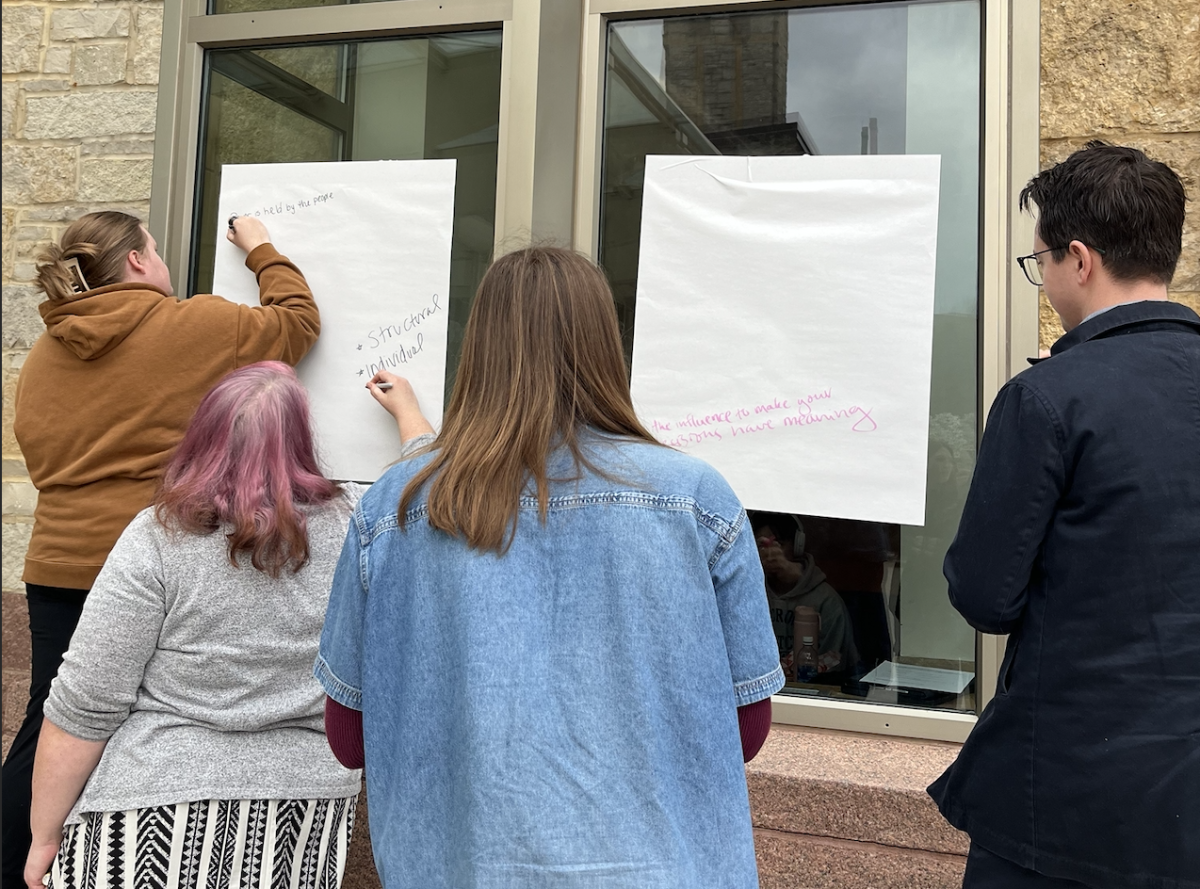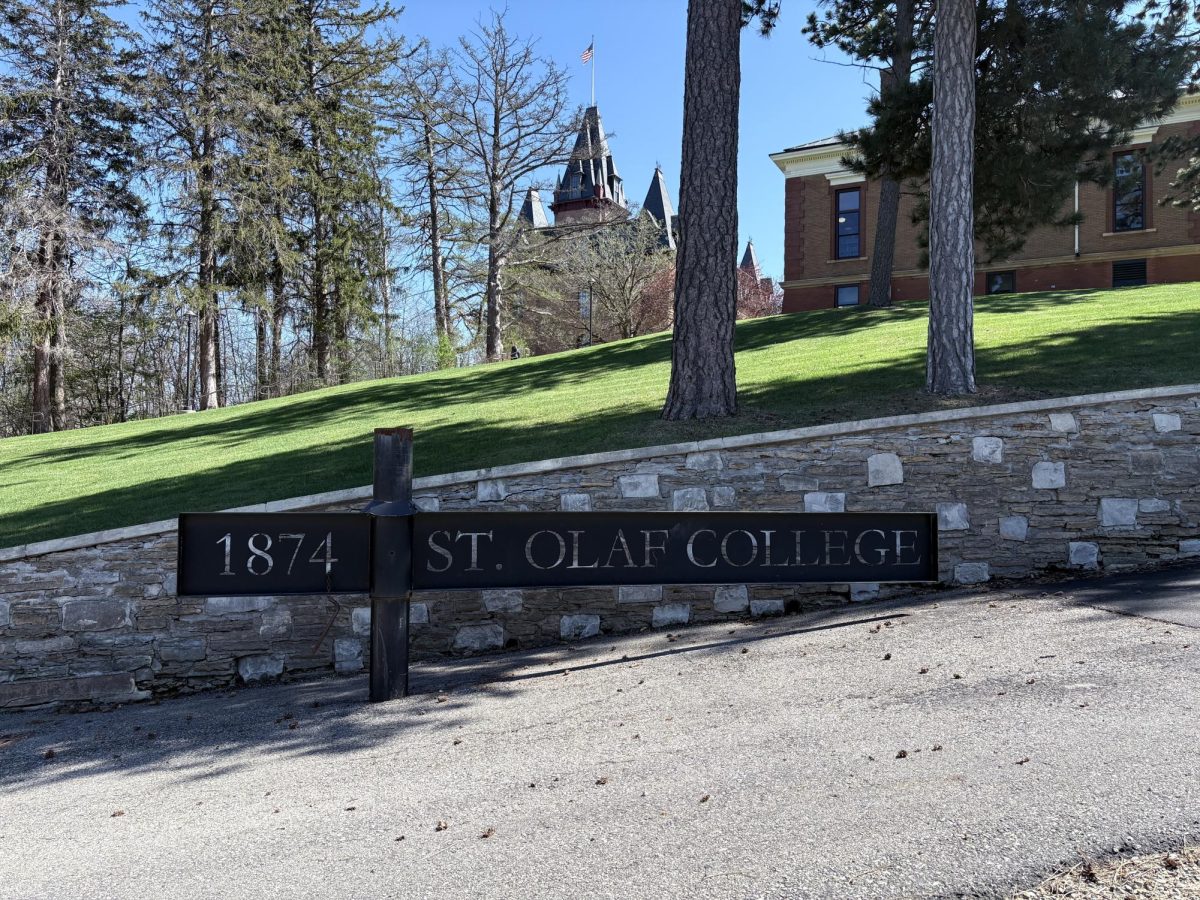On Thursday, Nov. 8, the political science department hosted a forum to facilitate discussion regarding the results of the 2012 election. Professor Henriet Hendriks explained that the St. Olaf campus was filled with activity and excitement during the months preceding the election, yet no one had thought about what to do afterward.
“That led me to think it would be helpful to take a step back and discuss the meaning of the outcome,” Hendriks said. Around 75 students, faculty and staff were in attendance, eager to join in the conversation.
Hendriks began the forum by discussing the role of the Electoral College in the election. After explaining that Barack Obama and Mitt Romney together spent nearly $2 billion on their races, she showed maps demonstrating where campaigning was focused by each of the parties. Her analysis of the Electoral College demonstrated the impact that the Electoral College has on where campaigns choose to allocate their time and funds.
Following Hendriks’ analysis, Professor Joshua Anderson spoke regarding the implications of polling in races. Although many predictions by political scientists in the election proved wrong this election, he believes that polling is here to stay.
 Professor Katherine Tegtmeyer-Pak followed by analyzing China’s coverage of the elections. “The election was watched all around the world,” she said. Tegtmeyer-Pak attributed the U.S.’s importance in global affairs as one reason for China’s interest in U.S. politics. To better understand the implications of this election, she encouraged the audience to investigate further into how the election was perceived internationally, rather than remaining limited to opinions and outcomes within the U.S.
Professor Katherine Tegtmeyer-Pak followed by analyzing China’s coverage of the elections. “The election was watched all around the world,” she said. Tegtmeyer-Pak attributed the U.S.’s importance in global affairs as one reason for China’s interest in U.S. politics. To better understand the implications of this election, she encouraged the audience to investigate further into how the election was perceived internationally, rather than remaining limited to opinions and outcomes within the U.S.
The last professor to speak was Dan Hofrenning, who focused on Minnesota politics and the organization of the parties. Another panelist, Bryan Wells ’12, a field organizer with the Senate DFL caucus, added to Hofrenning’s discussion of the Minnesota election by speaking about his work with local elections and the impact of grassroots efforts.
“After such a long and complicated election, it was great to hear professors’ and other students’ opinions about what actually happened and how we ended up with the results that we did,” attendee Erik Allerson ’15 said.
Following the speakers’ session, audience members were able to ask the panelists questions regarding the election. Questions ranged from the future of parties to the effectiveness of door knocking in raising awareness.
“It was great to see familiar faces as well as new faces,” Hendriks said. “It means students want to hear what the election means for politics and good government.”


